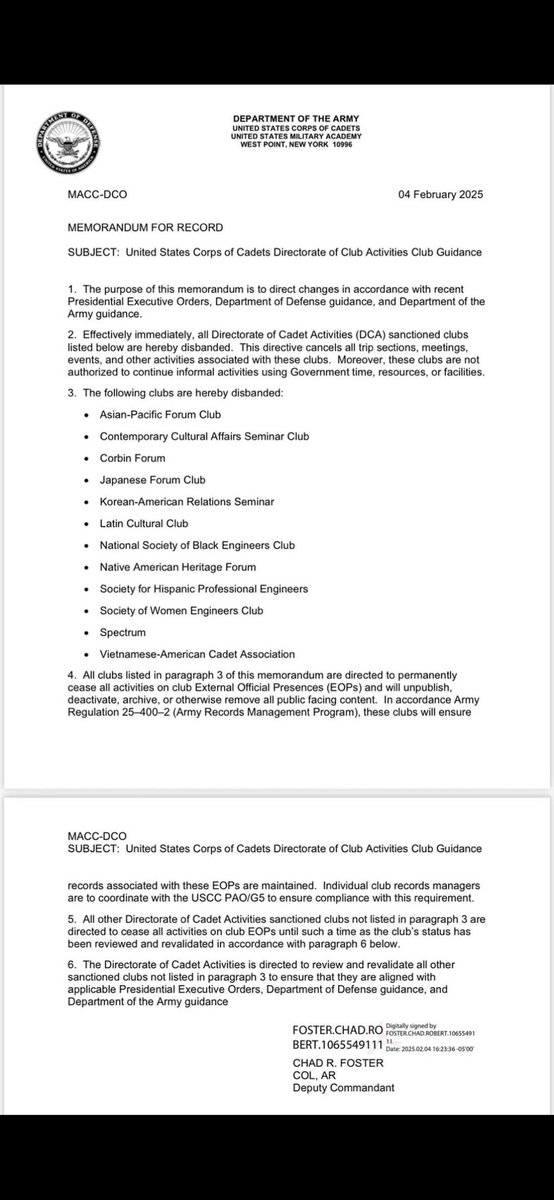Wednesday’s memo bars the use of sex-, race- and ethnicity-based quotas, objectives and goals in admissions and hiring. Racial quotas in college admissions have been considered illegal by the U.S. Supreme Court since the landmark 1978 case
Regents of the University of California v. Bakke.
The Supreme Court also barred race-conscious admissions — which considers an applicants’ race among other factors — in 2023, though it exempted military academies from the decision.
A Defense Department spokesperson did not clarify Monday if the memo also prohibits the use of race-conscious admissions at the three military academies, though Hegseth’s memo stresses that the agency must follow “color-blind policies.”
Leaders in the armed forces had advocated to keep race-conscious admissions at the nation’s military academies. In
a court filing before the 2023 ruling, dozens of highly ranked former military leaders argued that the practice is essential to maintaining “a diverse, highly effective officer corps,” as well as the “continued vitality of the U.S. military.”
The Biden administration similarly argued that maintaining a diverse service corps is a “national security imperative.”
Chief Justice John Roberts ultimately said in a footnote in the 2023 ruling that military colleges have “potentially distinct interests” from civilian colleges, separating them from the court’s decision.
But military colleges faced backlash shortly thereafter. Students for Fair Admissions, the anti-affirmative action group that successfully brought the Supreme Court case, is suing the Naval Academy, West Point and the Air Force Academy over their use of race-conscious admissions.
In December, a federal judge upheld the
use of race-conscious admissions at the Naval Academy, but SFFA quickly appealed the decision.
During his confirmation process, Hegseth told lawmakers that he opposed the use of race-conscious admissions at the military academies,
according to Reuters.
“I reject the idea that the MSAs (military service academies) should have different standards for individuals with different skin colors,” Hegseth said in response to follow-up questions after his hearing.





